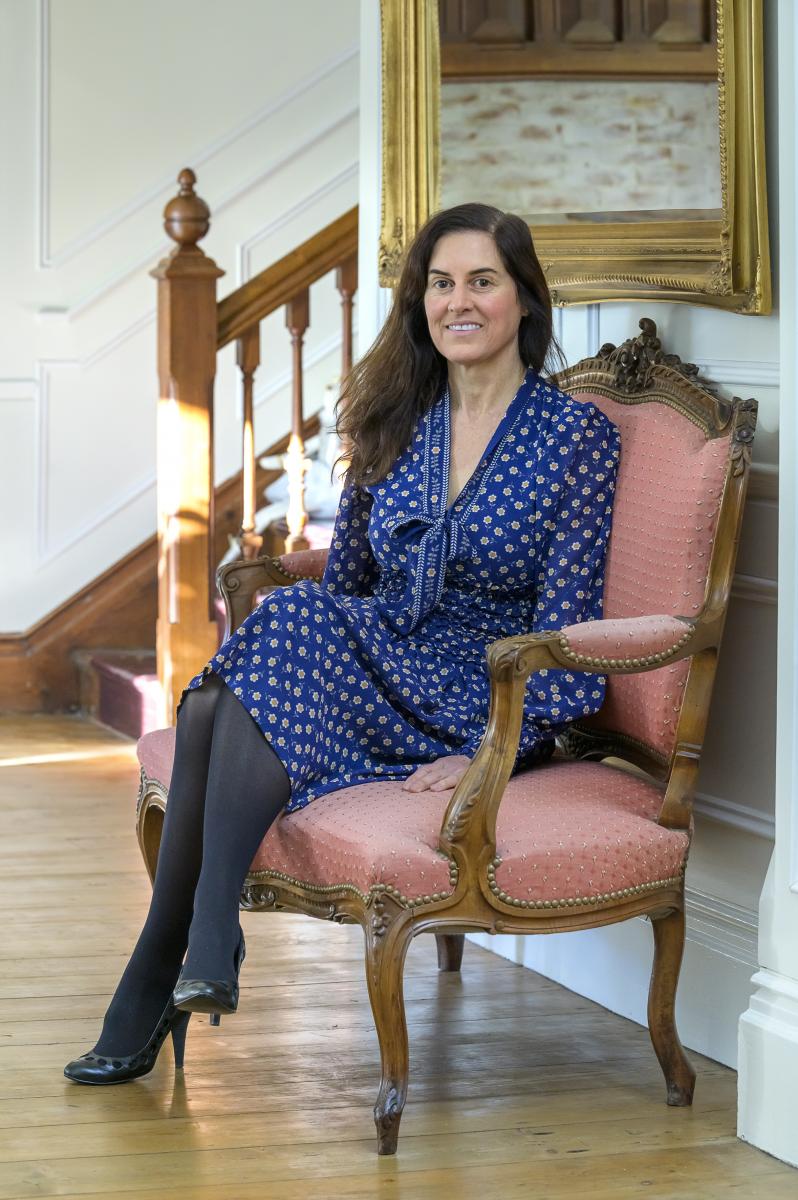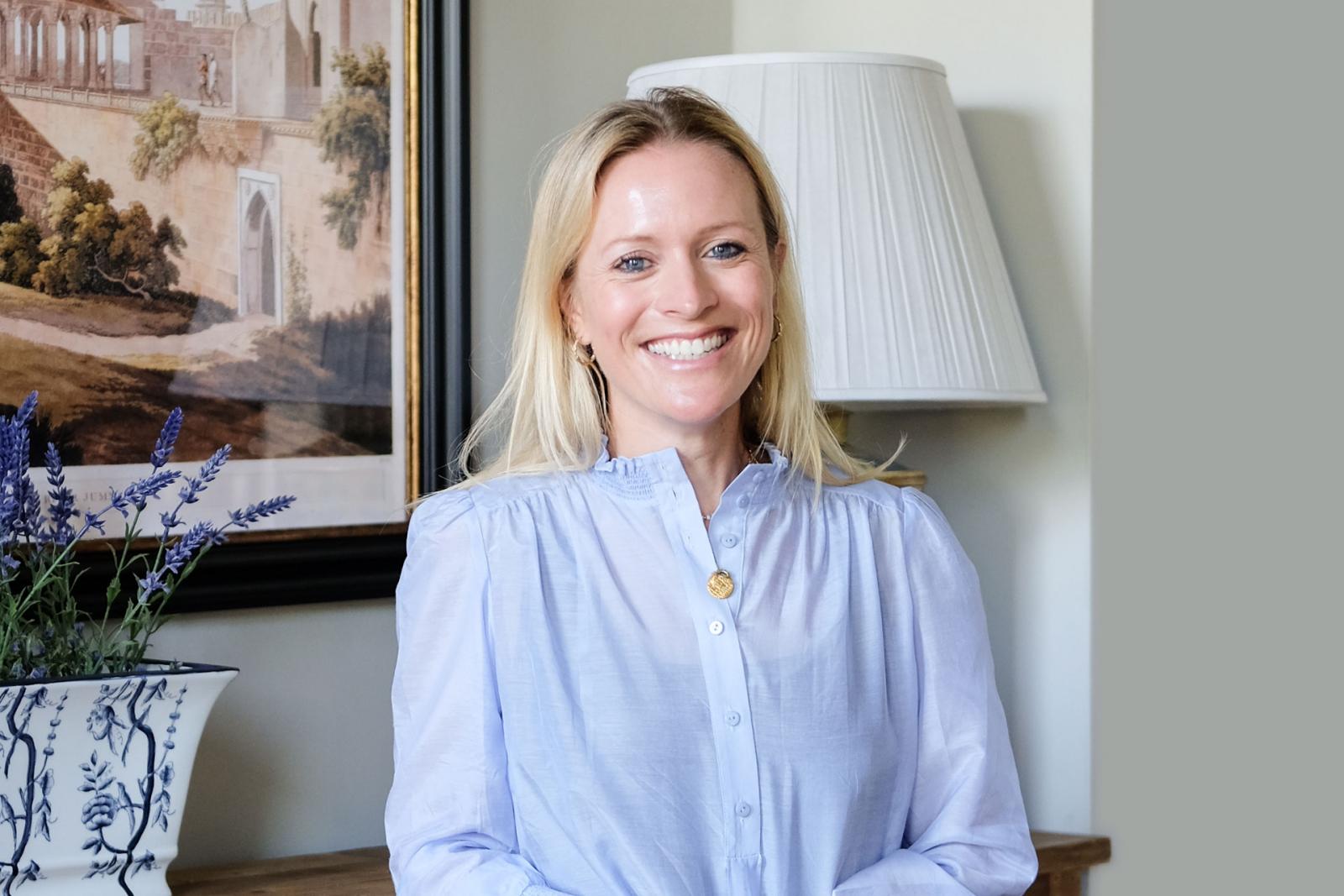Kim Lidbury, group director, property management, Leaders Romans Group
.jpg)
Recent figures from RICS reveal a significant lack of women at a senior level in the property industry: of the number of members who have achieved fellowship status, only 4% are women. To me, this figure was surprising as Leaders Romans Group (LRG) is 63% female and there are several women around our boardroom table.
But dig a little deeper and the figures are less depressing. As of the fourth quarter of 2023, there were approximately 207,000 women employed in the real estate sector in the UK, compared with 205,000 men and the number of qualified female professionals has at least risen from a mere 5% in 1990 to 18% today.
Slowly but surely, the number of women in senior roles is increasing, but at what cost? It would be interesting to know what proportion of female managers have children, for example – and, conversely, how many have sacrificed prioritising having a family to prioritise their career.
Until two years ago I was part of the latter category: I worked hard to get become group director of property management, enjoyed my job and focused on career rather than family. I had assumed that having a child would disrupt my career and possibly in some way hinder it.
I knew I wanted a family but didn’t know how to do both career and parenting. It was something that felt impossible. However, what I didn’t realise that this was my own assumption. My employer, as you would expect, was able to support me through these assumptions and when I realised that my role would be compatible with family life, it was almost too late for me. I didn’t even consider that I may struggle falling pregnant.
Today, I am pleased to say, I am not only a full-time senior director with a little girl, but one who has gone through the IVF to achieve this – again, thanks to the support of my company.
Everyone’s IVF journey is different, some much harder than others which both can take a mental and physical toll. I was fortunate in many ways and feel like one of the lucky ones,
though there is a particular irony that having moved for the benefit of my job, I moved from a health authority which provided two free rounds of IVF to one which was less supportive.
But I had moved to a company which was not only supportive but continues to be my biggest advocate, and as my daughter approaches her second birthday, I realise that with people believing in you and providing you with the right encouragement, you can do anything.
Recently LRG launched a new benefit which supports employees undergoing fertility treatment. There are so many appointments needed during this process and ensuring the team member feels supported to attend fertility appointments forms part of this policy. The important part is that this is not just a policy for the woman going through the IVF procedure but also for the partner.
The policy is seen as an important tool in enabling LRG’s teams to support colleagues going through treatment and acknowledges the need for support within the workplace.
The Human Fertilisation and Embryology Authority (HEFA) reports that increasing numbers are undergoing these procedures. In the period 2019-2021, egg-freezing and storage increased by 64% and IVF and donor-insemination cycles by 10%. The number of IVF patients in female same-sex relationships increased by 33% rise and single parents undergoing fertility treatment rose by 44%. Globally, according to the European IVF Monitoring Consortium, IVF accounts for the conception of over 5% of all newborns in some European countries. Since I have been more open about my fertility journey within our company, I have had many colleagues talk to me about their journey to become parents too. The fact is, this is something that many people now go through.
However, the IVF process is complex and stressful and consists of multiple steps in a single cycle which can take months to complete. The main reason for patients prematurely dropping out of IVF prior to succeeding in becoming pregnant are the financial, physical, and psychological burdens of the treatment.
LRG introduced this unique benefit in recognition that everyone’s journey to starting a family is different and that undergoing fertility treatment can be challenging, both mentally and physically. It’s the greatest testament to an inclusive organisation and it helps create an open and honest workplace and which supports both parents – many months before the birth of their baby.
The situation for working parents is improving across the board: mothers with children are at work in higher numbers than in any equivalent quarter over the last 20 years, while the overall level of all working-age females in employment has risen, according to figures from the Office for National Statistics.
With a third of working mothers also accessing special working arrangements, such as flexible or term-time hours it is clear many employers are re-imagining work to allow better access to those with care responsibilities. I suspect that few have the opportunity to access benefits such as LRG’s fertility benefit, but I am confident that the situation for working parents will continue to improve.
On International Women’s Day, we should cast aside the guilt and celebrate the fact that we are part of a growing statistic which is normalising the presence of women in senior roles – and that this will make the path easier for our daughters.
Claire Whisker of buying agency platform First In The Door

When I reflect on my career - from the early days as a barrister/ solicitor, through to inhouse counsel at a tech start-up and my own two prop-tech businesses - all of my bosses and, more recently, those in the C Suite, have been and are male.
Well, for me, this has only ever been hugely positive. I am grateful that each and every one of the men who helped shape my career has been not only an outstanding boss but also a supportive, caring and inspirational mentor. When I worked in my first law firm in London, I was only one of perhaps a dozen female solicitors in an office of over 100. Rather than feeling daunted, I took it in my stride. As a trainee, I recall seeking out a female mentor (in an unrelated profession) just to have a senior professional lady with whom to talk. I imagine I am fairly typical of those who graduated in the late 90s, with fewer females in senior positions around, and I am pleased to see that landscape gradually change.
I think things have moved in a very positive direction for women in property in the last ten years, with the mix of males and females much more level. In fact, when meeting with a potential client last year for my newly-launched business First In The Door, he commented on the fact that we had lots of buying agencies on board which were founded by women! Having experienced, professional women leading, or in senior roles, at organisations is enormously helpful for younger females or for those starting out.
Role models and mentors are powerful, and seeing other women in top positions provides a great confidence boost to other females as they progress their careers and aspire to become leaders themselves. These days, I mentor a couple of women in their 20s and would hope that the female graduates of today have senior women within their organisations - it's so important to have role models who you can aspire to emulate.
I have never felt that I couldn’t achieve anything I wanted to as a woman. My advice to young women looking to start a career in property is to work for people you admire and can learn from. Always be learning... the smartest people I've worked with never assume they know everything and know how to keep quiet and listen to others.
Kate Brookfield, Vita Properties

I have seen more women in senior roles over the past ten years, but still very few women commanding managing director roles in the industry. Obviously we, as women, still face the attitude of some (not all) men considering that even though we are talented and ambitious, we (women) will eventually need time out for starting families and they (male MDs) will need look to be more flexible with us returning to work after children.
The fact is that nowadays, families need joint incomes and we work in an industry that requires us to be available at inconvenient hours, however with work from home flexibility, we are meeting clients more during working daytime hours so it in theory should be easier for all parents to continue to perform in their roles and meet targets whilst working around available childcare.
I also don’t believe that high street agencies need to open offices to such extreme hours. This leads to inflexibility as bodies are needed in these offices on the high streets. In my experience, this is one of the bigger driving factors for female talent to move into self-employed brokerage style roles (myself included).
The advice I would offer to the next generation of talented females is to ignore the noise and be completely authentic. And do not let anyone try and tell you cannot achieve your personal goals when you have a family of your own. Thankfully the industry is fast moving away from traditional high street corporate agency and you can absolutely have a good quality of life alongside a solid career.
The property industry has changed considerably over the past ten years with regards to its diversity and inclusivity. Although there is still some way to go, the pandemic accelerated the move to increased flexibility with regards to working from home, enabling women to juggle their careers around the demands of having children and working around school pick ups etc. The Property and Construction industry as a whole is still perceived as being male dominated, particularly by school leavers so it’s important that we show female role models and advertise apprenticeship schemes to attract young female talent to the property industry.
Charlotte Strang, Strang & Co

I am very excited to be celebrating another International Women’s Day as a business owner. This is my second one, having Founded my buying agency business Strang & Co, circa 18 months ago. Having previously worked in the property industry for fifteen years, which includes working for one of the world’s leading property consultancies, I feel fortunate to be using the knowledge and skills I have garnered from years of working with both male and female professionals at the height of their careers, to create my own brand.
The face of the property industry, despite still having a considerable way to go, has changed dramatically since I commenced my career in 2008. Although it is still a male dominated industry, the balance is levelling out and I am privileged to be able to have witnessed women who have created incredibly successful property companies or who have risen to leadership positions - something we’re seeing far more now than we used to even ten years ago.
Although there is still some way to go, the pandemic accelerated the move to increased flexibility with regards to working from home, enabling women to juggle their careers around the demands of having children and working around school pickups.
The property and construction industry as a whole is still perceived as being male dominated, particularly by school leavers so it’s important that we show female role models and advertise apprenticeship schemes to attract young female talent to the property industry.
I feel that my ‘super power’ as a woman lies in being highly empathetic (a broad generalisation I appreciate) and being able to understand the nuances of a buyer’s property search. This can be hard to detail and articulate but be as much about the heart, as it is the head, particularly when finding a home which may form the backdrop of their lives for the next twenty years.
My advice for any young woman thinking about starting their career in property would be to gain as much experience as possible – whether that’s through shadowing, work experience, attending networking events, or working in different department or areas of specialism within a company. Work hard and follow your heart and interests as it is in these areas where you will thrive. I encourage women to appreciate that each of us has a unique set of skills and abilities to bring to the table and to recognise one’s strengths and utilise those skills to the best of one’s abilities.








.jpg)











.png)


.jpg)
.jpg)





%20-%20IMAGE%20Client%20Accounting%20%E2%80%93%20what%20are%20your%20options.jpg)


.png)
.png)
.png)
%20(002).png)






%20(002).jpg)



.png)




Join the conversation
Jump to latest comment and add your reply
Oh dear here we go, from what i have seen the biggest barrier to women in the work place has been other women. Now going to hide ha ha.
Did I miss straight white biological man day? you know the forgotten one that is discriminated against by the effects of positive discrimination to just about everyone else?
International Men's Day is on 19 November. I am happy to include a comment piece from you if you want to get in touch nearer the time about the challenges you have faced.
Please login to comment